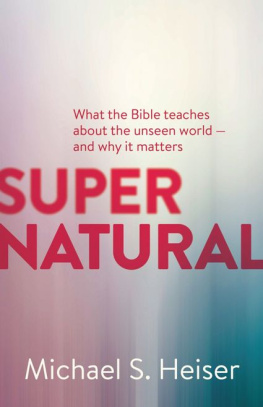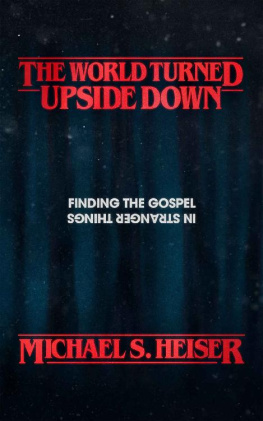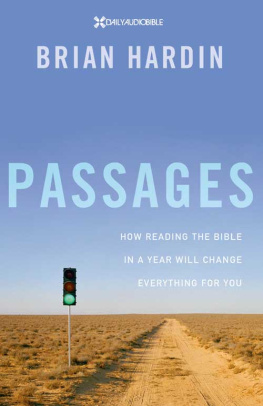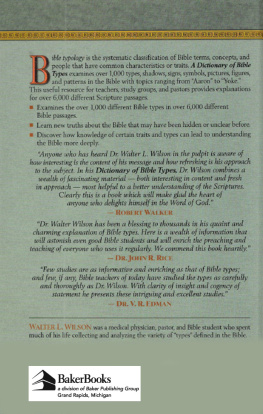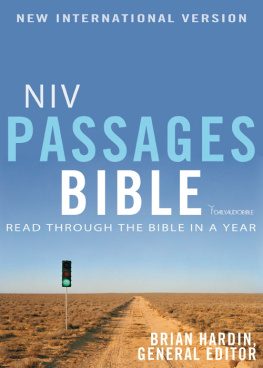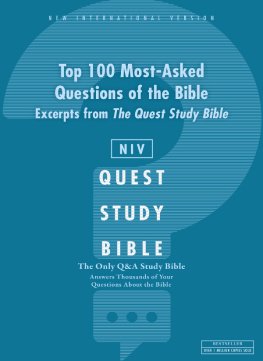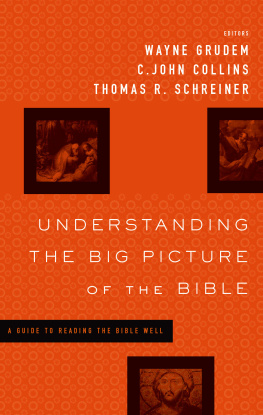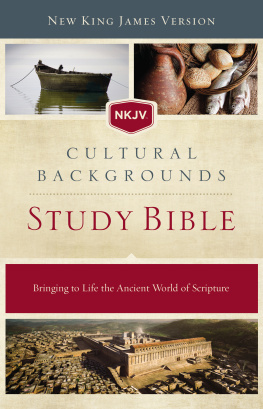I Dare You Not to Bore Me with the Bible
Michael S. Heiser

I Dare You Not to Bore Me with the Bible
Copyright 2014 Lexham Press
Lexham Press, 1313 Commercial St., Bellingham, WA 98225 http://www.lexhampress.com
You may use brief quotations from this book in presentations, articles, and books. For all other uses, please write Lexham Press for permission. Email us at .
Unless otherwise indicated, Scripture quotations are from The Holy Bible, English Standard Version (ESV), copyright 2001 by Crossway, a publishing ministry of Good News Publishers.
Ebook ISBN: 978-1-57799-567-8
Editor-in-Chief: John D. Barry
Managing Editor: Rebecca Van Noord
Copy Editors: Rebecca Brant, Elizabeth Vince, Lynnea Fraser, Elliot Ritzema
Cover Design: Jim LePage
Contents
The Bible is accessible to everyone, but parts of it can be perplexing. Its the weird and supposedly boring parts of the Bible that Dr. Michael S. Heiser addresses in this volumeall in an effort to make the Bible come alive for you again.
For many, Bible study means stilted religion or dull Sunday school classes. After reading this book, you wont be bored by Bible study. It will explain Bible passages that have always confused you and show you that seemingly insignificant details can be criticalyou will never skip a Bible passage again.
Dr. Heiser will connect you to the place and time in which the biblical writers lived and help you understand what these connections mean. He will also help you develop your Bible study abilities.
Tried and tested, the essays in this collection originally appeared in Bible Study Magazine in the sections Weird, but Important, I Dare You Not to Bore Me with the Bible, and What They Dont Tell You in Church. Many of the essays included are interrelated, and many offer succinct treatments of complex topics. Dr. Heiser has published on most of the topics academically. You can see some of his research at michaelsheiser.com.
Enjoy traveling the ancient trails of the biblical world with Dr. Heiser. May God bless you in your pursuit of Him and in your study of His Word.
John D. Barry
Editor-in-Chief of Bible Study Magazine
Bellingham, Washington
The Bible is a wonderful book. Its pages reveal the epic story of Gods redemption of humankind and the long, bitter conflict against evil. Yet its also a book that seems strange to us. While Gods Word was written for us, it wasnt written to us.
Its been my experience, as a Bible reader, seminarian and graduate student, and even as a biblical studies professor, that most people dont know what to do with the odd, perplexing, and perhaps frightening passages in Scripture. We tend to simply skip them. Yet by doing so, we abandon our responsibility to grasp and teach the entirety of Scripturethis book we believe to be the inspired Word of God.
As a consequence, believers tend to learn only the basic truths taught in the Bible. Recent studies from the Barna Group demonstrate a growing rate of biblical and theological illiteracy in the Church at all ages, especially for those under 40. Biblical and theological illiteracy contributes to less engagement with the Bible, less appetite for its teachings, and more confusion and skepticism.
Many Christians know the indispensable parts of the storyline of the Bible and the gospel message. Yet they are lost when it comes to the remainder of the Bibleespecially the Old Testament, which comprises a full three-quarters of the book. Some believers try to mend this knowledge gap. They might read through all the notes in a study Bible or even use various tools for studying Hebrew and Greek words. Yet those are the exceptions. Many people, after years of inaction, get bored with the Bible.
I began my teaching career at a Bible college, where I inherited the next generation of Christian young peoplean age group that is now the adult leadership in their churches. Since these students had chosen to go to Bible college, I presumed they were the most likely to be interested in the material. I quickly discovered that wasnt the case. These students had grown up in church. Theyd heard sermons, attended Sunday school classes, and listened to countless messages at youth group and camps. In their minds, theyd heard it all. And in one sense, they had. Theyd heard all of the items covered in Christianity 101hundreds of times. I distinctly remember looking out on a room full of faces that telegraphed one thought: I dare you not to bore me with the Bible.
I accepted the challenge. It was thrilling to show students that there is so much to discover and think about in Scripture. My students needed to understand that Bible reading is not Bible study, and that truly understanding much of the Bible requires seeing it in its original context, not filtering it through a familiar tradition. I could only hope that after my tiny classroom of students left Bible college, theyd keep probing and discovering.
This book grew out of the desire to make Bible Study Magazine a tool for stimulating the person in the pew to engage the most fascinating book in the world. I recall discussing the first issue years ago with our editor, John Barry. I related some of the episodes where I picked up the gauntlet thrown down by my students not to bore them with the Bible. We decided to name one of the features of the magazine after those experiences: I Dare You Not to Bore Me with the Bible. Out of those early conversations other features were also born: Weird, but Important and What They Dont Tell You in Church. This book is a compilation of my contributions to those features. I trust youll enjoy themand, of course, not be bored.
Michael S. Heiser
God chose a specific time, place, and culture to inspire people to produce what we read in the Old Testament: the ancient Mediterranean and the ancient Near East of the second and first millennia BC. Understanding the worldview of this culture can lead to more faithful understandings of Scripture on our part, especially when it comes to understanding how the Israelites viewed God and the universe.
Old Testament Cosmology
Cosmology refers to the way we understand the structure of the universe. The biblical writers conception of how the heavens and earth were structured by God represents a particular cosmology.
The Israelites believed in a universe that was common among the ancient civilizations of the biblical world. It encompassed three parts: a heavenly realm, an earthly realm for humans, and an underworld for the dead. These three tiers are reflected in the Ten Commandments: You shall not make for yourself a carved image, or any likeness of anything that is in heaven above, or that is in the earth beneath, or that is in the water under the earth ().
The Heavens
We find an Israelite understanding of the heavens in , which describes it as an expanse, with waters above and below: And God said, Let there be an expanse (, raqia ) in the midst of the waters, and let it separate the waters from the waters. And it was so. And God called the expanse (, raqia ) Heaven.
The sky, thought to be a solid firmament, separated the waters above from the waters below: When he established the heavens, I [Wisdom] was there; when he drew a circle on the face of the deep, when he made firm the skies above, when he established the fountains of the deep ().
The firmament dome surrounded the earth, with its edge meeting at the horizonthe boundary between light and darkness ().


